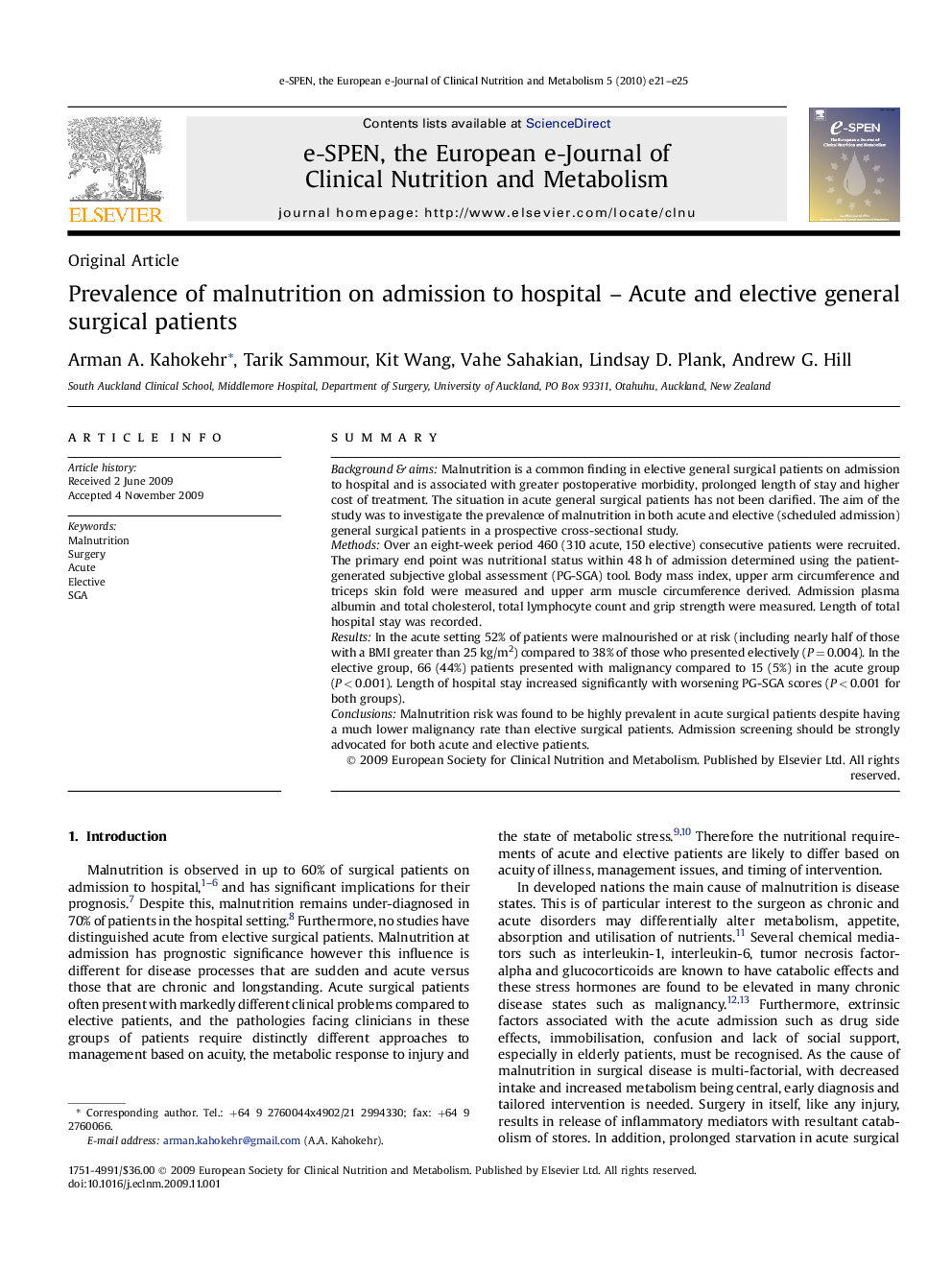| Article ID | Journal | Published Year | Pages | File Type |
|---|---|---|---|---|
| 2686318 | e-SPEN, the European e-Journal of Clinical Nutrition and Metabolism | 2010 | 5 Pages |
SummaryBackground & aimsMalnutrition is a common finding in elective general surgical patients on admission to hospital and is associated with greater postoperative morbidity, prolonged length of stay and higher cost of treatment. The situation in acute general surgical patients has not been clarified. The aim of the study was to investigate the prevalence of malnutrition in both acute and elective (scheduled admission) general surgical patients in a prospective cross-sectional study.MethodsOver an eight-week period 460 (310 acute, 150 elective) consecutive patients were recruited. The primary end point was nutritional status within 48 h of admission determined using the patient-generated subjective global assessment (PG-SGA) tool. Body mass index, upper arm circumference and triceps skin fold were measured and upper arm muscle circumference derived. Admission plasma albumin and total cholesterol, total lymphocyte count and grip strength were measured. Length of total hospital stay was recorded.ResultsIn the acute setting 52% of patients were malnourished or at risk (including nearly half of those with a BMI greater than 25 kg/m2) compared to 38% of those who presented electively (P = 0.004). In the elective group, 66 (44%) patients presented with malignancy compared to 15 (5%) in the acute group (P < 0.001). Length of hospital stay increased significantly with worsening PG-SGA scores (P < 0.001 for both groups).ConclusionsMalnutrition risk was found to be highly prevalent in acute surgical patients despite having a much lower malignancy rate than elective surgical patients. Admission screening should be strongly advocated for both acute and elective patients.
